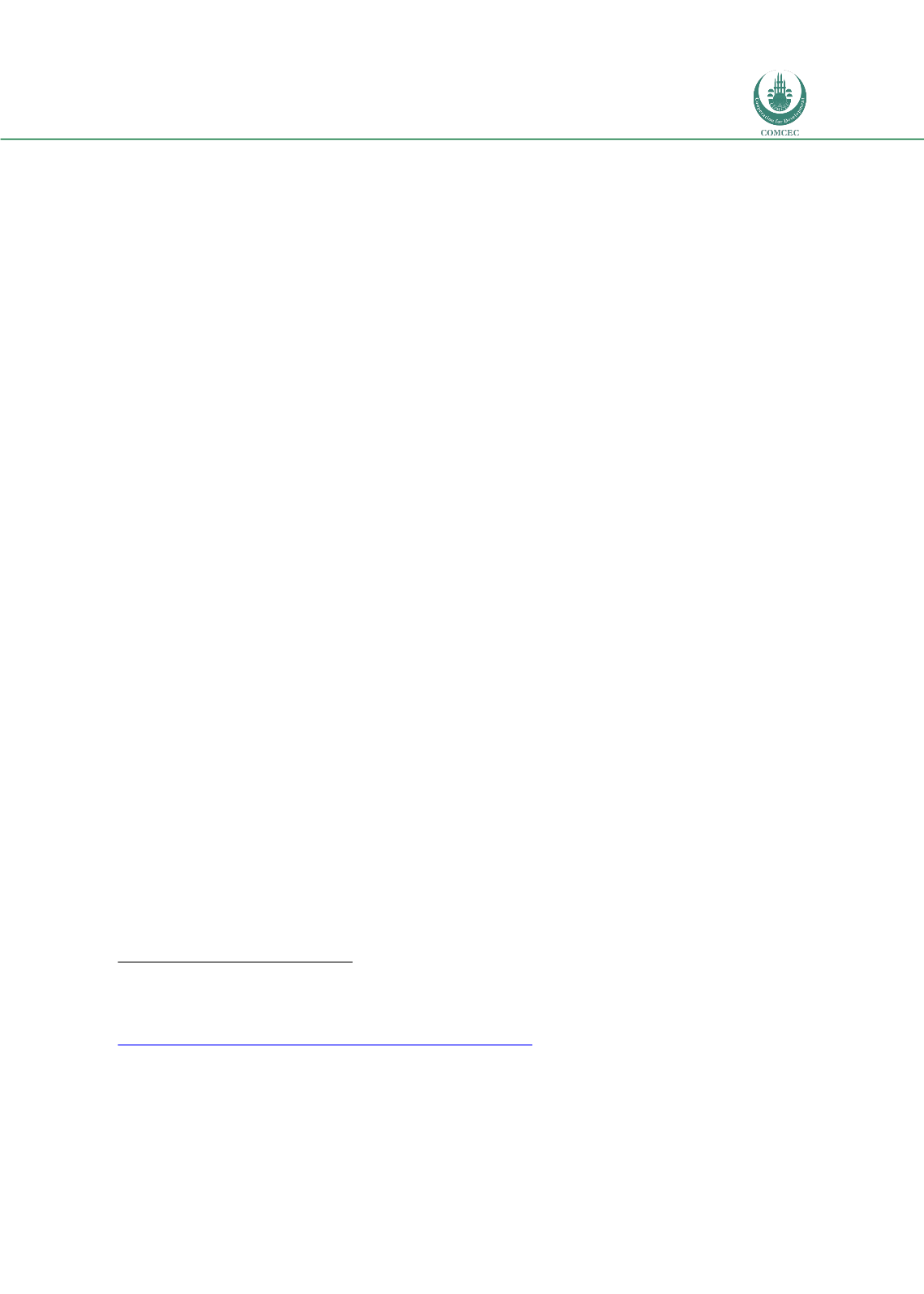

Forced Migration in the OIC Member Countries:
Policy Framework Adopted by Host Countries
81
education even before they arrived.
67
One key positive of phasing out TECs is that the quality
and content of education will be more easily monitored. However, it is uncertain how relevant
the content of mainstream Turkish schools will be for Syrian students who ultimately return
home under the provisions of the Temporary Protection Regulation. The capacity of Turkish
teachers will also be tested by the influx of new students who must overcome initial language
barriers and cultural differences.
A final key barrier to the provision of quality education to all Syrian children is that dropping
out is a common phenomenon. Many Syrian children enroll in school, but do not attend
regularly due to the lack of a stable home life, poor living conditions, constant movement from
one accommodation to another, and the need to work.
68
International donors and NGOs continue to play a large role in the education and training of
forced migrants in Turkey. With a total expenditure of nearly USD 57 million by the end of
2015, UNICEF made a significant financial and technical contribution to the construction and
management of Temporary Education Centers by constructing of 31 schools (managed
together with the Ministry of National Education), incentivizing Syrian volunteer teachers, and
providing technical expertise to create the Education Management Information System for
Foreigners (YOBIS).
69
The Human Resources Development Foundation (İKGV) and
SGDD/ASAM Multi-Service Centers (
Çok Yönlü Destek Merkezleri
) provide vocational training
courses and after-school activities to build on children’s formal education.
70
The think tank
İGAM (
İltica ve Göç Araştırma Merkezi
) is working on a project to create an integration tool
based on that developed by the European Union for the integration of Bulgarian and
Romanian students to EU education standards when their countries joined the EU.
71
Finally,
the Yunus Emre Institute is responding to the extraordinary need for formal training in
Turkish as a second language by developing a full course that can be taught in various teacher
training institutions around the country.
72
Health
Free healthcare is provided to all registered beneficiaries of protection in Turkey including
medical consultations, procedures, and medicine prescribed by a licensed provider. (Turkish
citizens have to pay for medicine.) As of June 2016, 16.7 million consultations, 1.7 million
hospital treatments, 152,000 births, and 687,000 operations have been performed by Turkish
medical practitioners for protected Syrians.
73
Health care access for Syrians commenced with
a 2013 AFAD Communique calling for free access to health services in 11 border provinces.
74
This was then expanded so that Syrians under temporary protection with a Foreigner
Identification Number could benefit from healthcare in any province where they were
registered.
75
67
Kemal Kirişci,
Syrian Refugees and Turkey’s Challenges: Going Beyond Hospitality.
68
World Bank,
Turkey’s Response to the Syrian Refugee Crisis and the Road Ahead
, 8; Metin Çorabatır,
The Evolving Approach
to Protection in Turkey,
20; Serhan Alemdar, in conversation with Kathleen Newland, May 2, 2016..
69
UNICEF,
UNICEF Annual Report 2015: Turkey,
http://www.unicef.org/about/annualreport/files/Turkey_2015_COAR.pdf .Shelley Culbertson and Louay Constant,
Education of Syrian Children
, 31.
70
Interview with İKGV, İstanbul Çok Yönlü Destek Merkezi, Tarlabaşı
71
Metin Çorabatır, in conversation with Kathleen Newland, May 2, 2016.
72
Interview with Turkish Development Ministry, 2 May 2016
73
AFAD, “Giris,” accessed July 8, 2016,
https://www.afad.gov.tr/TR/IcerikDetay1.aspx?IcerikID=747&ID=1674
Osman Bahadır Dinçer et al.,
Turkey and Syrian Refugees: The Limits of Hospitality
, 18.
75
Metin Çorabatır,
The Evolving Approach to Protection in Turkey
, 17.
















